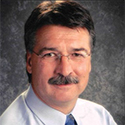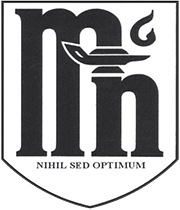Page Content
Making a “go” of it through partnerships
The real voyage of discovery consists not in seeking new landscapes, but in having new eyes.—Marcel Proust
 How do international school partnerships aid in the transformation of teaching, learning and school leadership?
How do international school partnerships aid in the transformation of teaching, learning and school leadership?
Over the past three years, McNally High School, in Edmonton, has partnered with schools in Spain, China and Finland. The details of these partnerships vary, but the central purpose is to improve teaching, learning and school  leadership through an understanding of national, community and school cultures. As these partnerships developed, we maintained a learning focus to prevent lapsing into educational tourism. For today’s students, school and schooling are much larger concepts than ever before. Our new Global Opportunities (GO) program fosters international partnerships and opens the world for students and staff. The transformation of education will require collaboration and networking, and the type of learning that arises from effective, focused partnerships.
leadership through an understanding of national, community and school cultures. As these partnerships developed, we maintained a learning focus to prevent lapsing into educational tourism. For today’s students, school and schooling are much larger concepts than ever before. Our new Global Opportunities (GO) program fosters international partnerships and opens the world for students and staff. The transformation of education will require collaboration and networking, and the type of learning that arises from effective, focused partnerships.
Spain
McNally’s initial international school partnership was with Colegio Sagrados Corazones, in Miranda de Ebro, Spain. For several years now, the exchanges have involved between 10 and15 students and one teacher, all of whom live with host families and attend classes and school functions and experience the regional culture for three weeks (September in Canada, April in Spain). Students attend class but continue their school work. At the end of the program, they produce final reports outlining their experiences and insights of the exchange and describing the similarities and differences between Spanish and Canadian school and community culture. The teacher instructs a few lessons as guest speaker and networks with staff in the host school on assessment practices, assistive technologies and instructional practice. Teachers who have participated in this program have said the experience provided an excellent opportunity for building their professional practice.
East of the Mountains in China
Our partnership with No. 2 Middle School of Yantai, in Shandong Province, China, is part of an Edmonton Public Schools project involving high schools with Mandarin language programs. The East of the Mountains research project involves students and teachers from the partner schools who investigate the sustainability of fresh water in the watersheds of Alberta and Shandong Province.
Over the past year, students and teachers communicated over the Internet to outline their fresh water situations. In May, nine students and their teacher from Yantai School were billeted in Edmonton and they continued their work with our students investigating the source and sustainability of fresh water from the eastern slopes of the Rockies. Students travelled the Banff–Jasper corridor to see first-hand where our water originates and visited the University of Alberta to speak with water researchers. In fall 2013, our students and teachers will travel to Yantai to conduct their China research. Teachers have been exchanging strategies to encourage a creative approach to the complex issue of fresh water. We’re excited to have our students attending school and conducting research in China alongside their Chinese classmates.
Finally, Finland
Our Finland–Alberta (FINAL) partnership began in 2011. Students, teachers and administrators in the project asked the question: “What makes a great school?” The FINAL project is a starting point for students and teachers to examine the world of school and to ask probing questions about why we do what we do. Emerging from this partnership is a globalization project that will provide Internet connection and computers for a school in Uganda, and a collaborative art project of travelling sketchbooks that students use to answer project questions through visual arts. As a school administrator, I was prompted to examine my practice and to reflect on the whys and why nots of how we organize for instruction, create high-performing instructional settings and enable practice that enhances teacher professional development.
Hannah, a Grade 10 McNally student who was involved in the FINAL project this past year had this to say about the experience:
This project could open up many doors. It would be a way to change curriculum and make an international curriculum that everyone could learn. It could be loose, so that from country to country it could be changed a little because of history, traditions and language. For example, a list of outcomes to teach however you choose throughout the world. Open up more ways for students to learn outside of the school. For example, exchange trips and projects. This project is a great way to find out problems with our education system that we didn’t think were there or that important. Studying someone else’s system is a way to determine what is good about your own, but what is bad. Also, you can be presented with ideas on how to fix these issues.
Partnerships led us to hold up a mirror to our own practice. By making engagement intentional, we see what our schools tell visitors about us and our school culture—about what is important to us.
During their first visit, Finnish principals commented that they could tell what we considered the most important aspects of our school culture by what we displayed in our front entrance showcase. This may seem like a small point; however, it directed our conversation and encouraged us to examine even the smallest aspects of our school. Throughout the partnership exchange visits, we’ve noted that the teaching practice in our partner schools is traditional, but work outside instruction is different; curriculum development in Finland involves collaborative lesson planning, and teachers have varying degrees of autonomy in determining course curriculum and assessment. By examining the policies and practice of our international colleagues, we’ve been able to examine our current reality and envision a transformed school.
Our international partnerships have taught us many important lessons, not the least of which is a few words in a new language. Mahdollista is a Finnish word for which there is no direct English translation. Loosely translated it means “making possible.” I believe the involvement of staff and students at McNally in these international partnerships has opened the way for us to think ahead to a new future of schools and education, to lead in our profession and to discover the key to creating and sustaining high-performing schools, and to deliver within by making possible the lessons learned through these valuable partnerships.
Dale Skoreyko is principal of McNally High School, in Edmonton.
